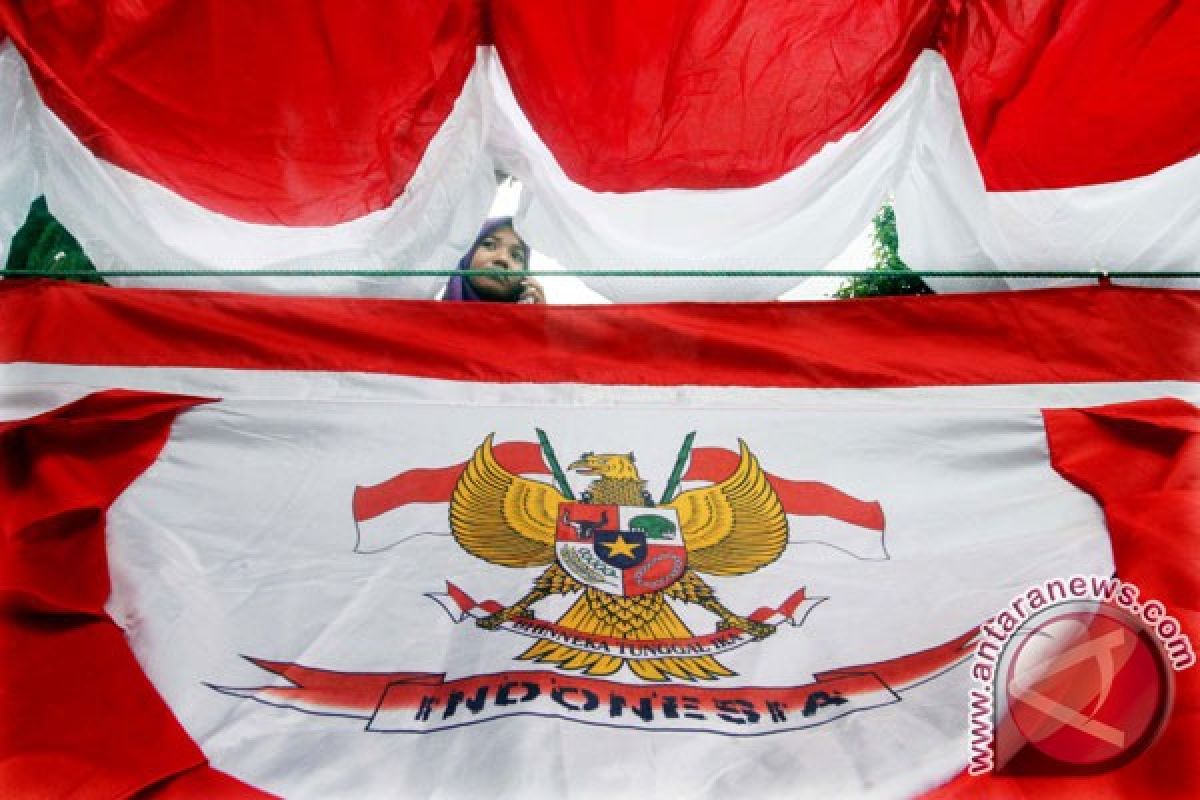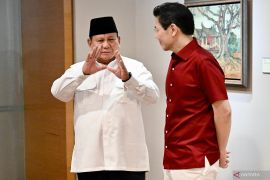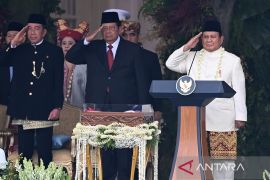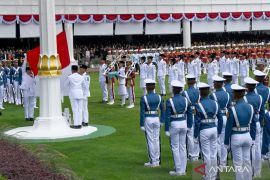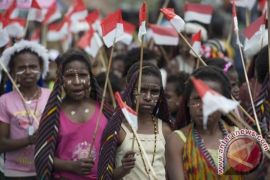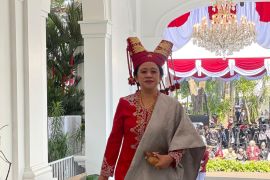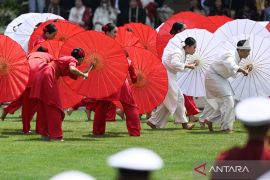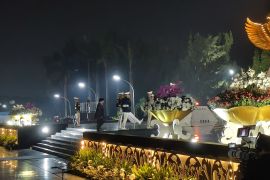... the Independence Day this time is an opportunity to usher a psychological revolution ..."Jakarta (ANTARA News) - Every year on August 17, since 1945, Indonesians across the country commemorate the anniversary of Independence Day with festivities and celebrations.
Preparations for the occasion begin well in advance with decorations hung throughout the capital Jakarta where the Presidential Palace and government office buildings are draped in red and white.
In addition, groups of people arrange for community service activities in which residential areas are cleaned up, and neighborhood communities coordinate special activities for the children.
The 71st anniversary of the Independence Day this year should not just remain a routine one, but should usher in a psychological revolution to build this nation.
The Independence Day celebrations are of great significance to the people as is the history of Indonesia, and therefore, it is time to connect the idea of independence with the spirit of a psychological revolution.
Independence Day is not only commemorated on land but also on sea and in air to show that the land, sea and air of the nation no longer belong to the colonial masters but belong to Indonesia and its citizens.
A unique thing about the celebration of this day in Indonesia is that all ceremonies are conducted simultaneously in all regions, from schools to official government offices, including the ceremony presided over by the president and attended by different groups, officials, army veterans and members of the public.
The Indonesian nation won freedom from occupation, and it is time for its people to be infused with the spirit of a revolution of the mind and undertake hard work to ensure the nations progress.
The mayor of Pariaman in West Sumatra, Genius Umar, has stated that the leaders and the general public do say the right words but there is no realization of the significance of what they say.
"Therefore, the Independence Day this time is an opportunity to usher a psychological revolution to do something for the sake of honoring the nations fallen heroes who fought on the battlefield for the independence of this country," Umar remarked in Pariaman, West Sumatra.
According to him, the responsibility of unleashing such a revolution rested not just with the leaders of the country and those in the regions, but with the youth, students and community leaders as well.
President Joko Widodos idea of a revolution of the mind is seen as an effective means for Indonesia to overtake other countries that have progressed, such as Singapore and Malaysia.
The revolution of the mind, which does not necessarily mean advancing the cause of education in Indonesia but also strengthening the national character, will help deal with the problem of inadequate human resources, a weakness that has been responsible for Indonesia lagging far behind other countries.
Such a revolution means a transformation in the thought process so that it supports a more accountable and less corrupt style of governance.
It will also help to develop people in such a way that they lead a pious life, have a sense of humanity, practice the tradition of deliberation and consensus and fight to realize social justice.
In addition, mental revolution is intended to build the character of Indonesian people who are healthy, smart and can contribute productively.
In the realm of education, such a revolution would mean teachers would be the pillars of the state, something that can be achieved by improving their welfare and offering them the widest possible opportunities to improve the quality of education.
Indonesia has been ranked among the most corrupt countries in the world and the revolution of the mind is expected to bring about a change in the mindset of the people, especially the countrys leaders.
The people believe that the President Joko Widodos government could lead the country to a better future.
In the light of this, all ministries and government institutions are agencies that should be more concerned with working in such a way that the mental revolution can be achieved.
Such a policy focuses on changing the mindset of the Indonesian people so that they have great manners and strong principles based on the values of the state philosophy of Pancasila.
Pancasila is the philosophical basis of Indonesias life and society that consists of "Five Moral Principles": Belief in the one and only God, Just and civilized humanity, the unity of Indonesia.
Democracy guided by the inner wisdom in the unanimity arising out of deliberations amongst representatives, and Social justice for all of the people of Indonesia.
Pancasila embraces humanitarian principles that have become the true and core identity of Indonesia.
Jokowis mental revolution policy is an answer to Indonesias need for a breakthrough in its human and social development, especially weeding out corruption since the New Order era.
The implementation of the mental revolution policy is highlighted in the education sector.
President Jokowi believes that minds can be effectively changed only if strategies to achieve this goal are in place right from the start of primary education.
In Jokowis opinion, Indonesias primary schools students should be educated about the importance of character development, manners and etiquette.
(T.O001/INE/KR-BSR/B003)
Reporter: Otniel Tamindael
Editor: Priyambodo RH
Copyright © ANTARA 2016
